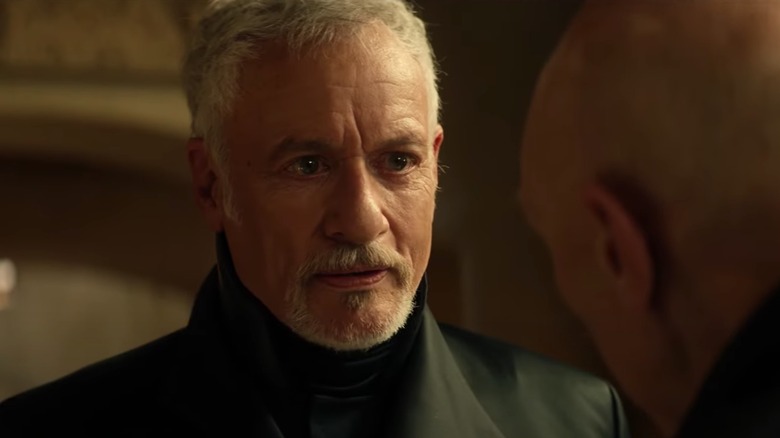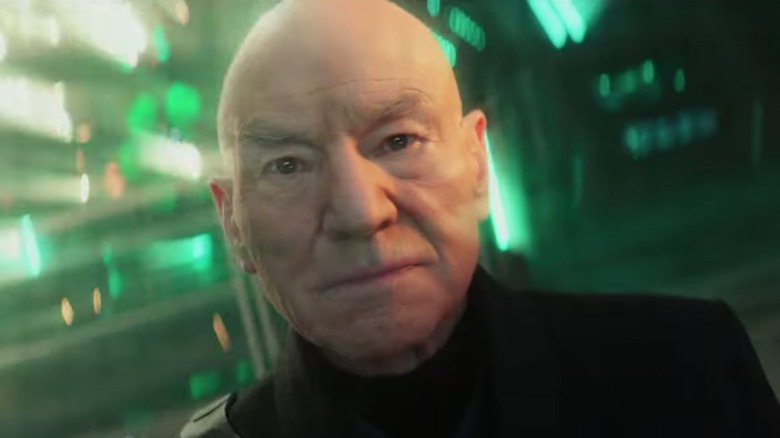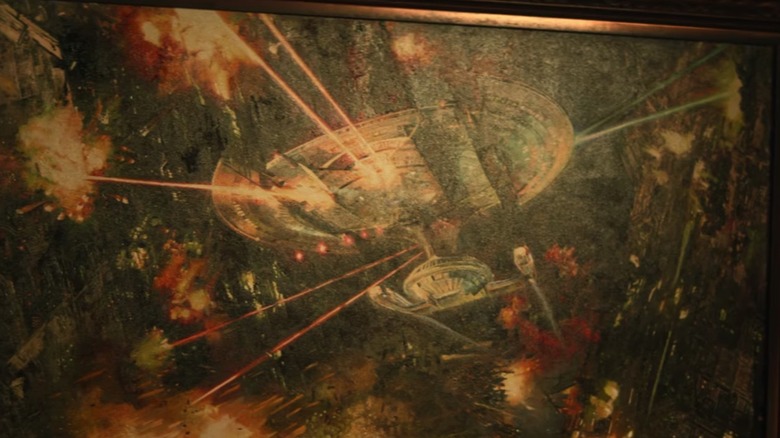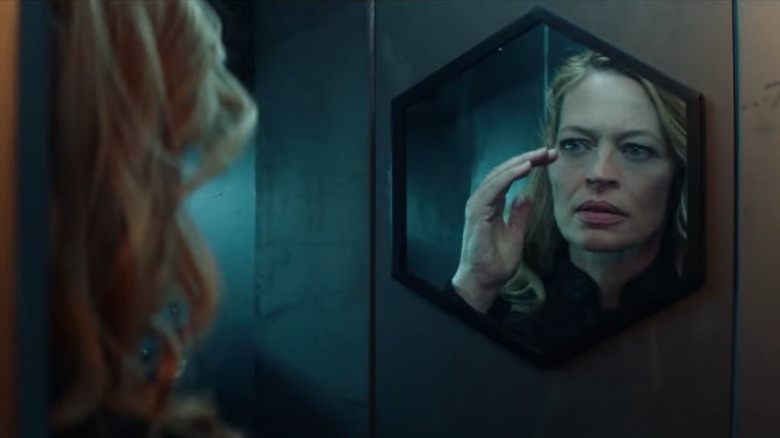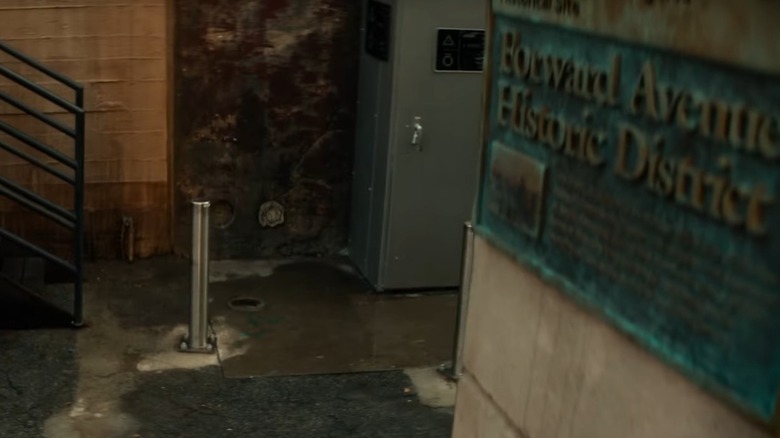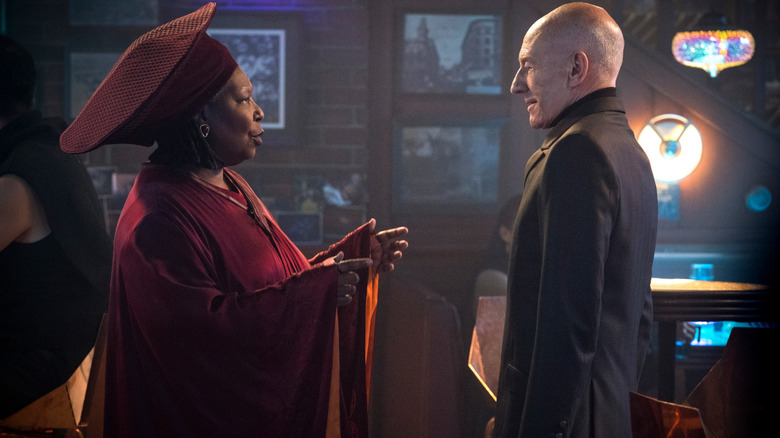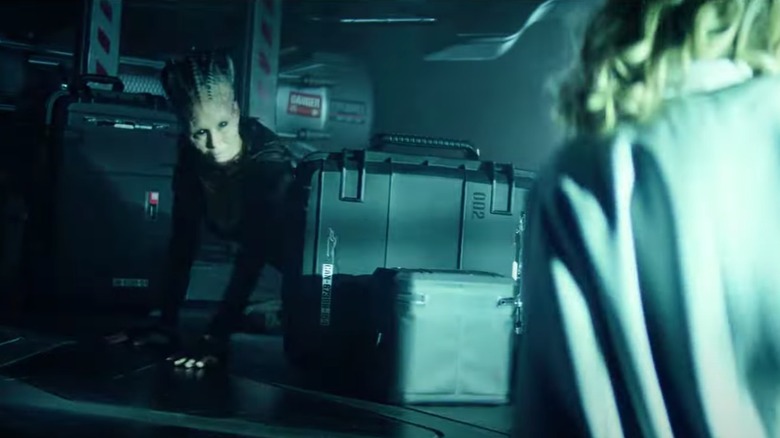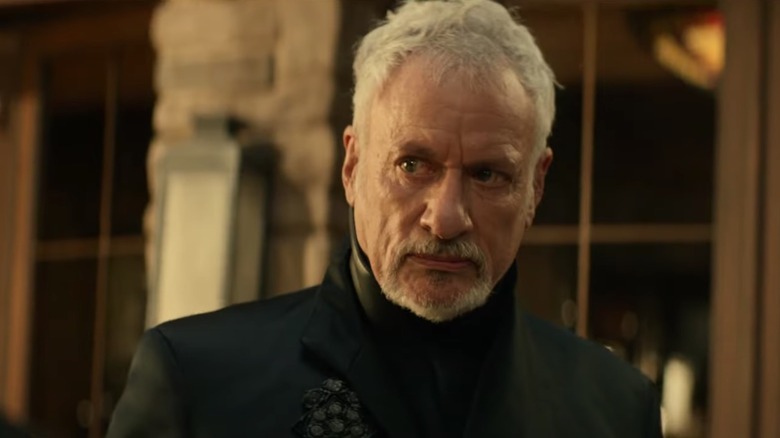Star Trek: Picard Season 2 Trailer Breakdown: Looking Under The Tapestry
The second season of "Star Trek: Picard" is scheduled for release on Paramount+ on March 3, 2022, and will run for 10 episodes. The final trailer for said season has been released to the public. As all good Trekkies are wont to do, over-analysis is now on the docket.
What we have learned from previous releases is that the second season of "Picard" will reunite the cast from the first season: the suicidal Capt. Rios (Santiago Cabrera), the murderous Dr. Jurati (Alison Pill), the murderous Elnor (Evan Evagora), the depressive Raffi (Michelle Hurd), the murderous Seven of Nine (Jeri Ryan), and the semi-genocidal Soji (Isa Briones) who was once almost convinced to release a Cthulhu-like robotic space deity into our dimension to lay waste to all organic life. Also returning is Brent Spiner as Altan Soong, a descendant of the man who invented Data. Yes, it seems the first season of "Picard" was less than rosy, and full of violence and catastrophe.
We also know, notably, that John de Lancie will be reprising his role of Q, the impish, omnipotent trickster god, and Whoopi Goldberg will return as Guinan, the long-lived and imminently wise confidant to Jean-Luc Picard. Oh yes, and Patrick Stewart will also be returning as the title character. Additionally, a Borg Queen will make an appearance, played by Annie Wersching, who previously appeared in an episode of "Star Trek: Enterprise" (as a different character). It's unclear if this is meant to be the same Borg Queen that Picard killed at the end of "Star Trek: First Contact," and who was previously played by Alice Krige.
With nearly two minutes of new footage to sort through, however, it's time to speculate.
Will This Be On the Test?
The 15th episode of the sixth season of "Star Trek: The Next Generation" was called "Tapestry," considered by several fans of the show (and the author of this article) to be one of the best of the series. In it, Picard dies and finds himself sharing the afterlife with Q. Picard is skeptical of what is happening, and doesn't discount that it may be a dream or a hallucination, but regardless, Q offers to send Picard back in time to a point in his youth when he was injured in a bar fight with a group of Nausicaans, and lost his own biological heart. Picard had an artificial heart in "Next Generation," and it was the thing that was going to kill him. If Picard can stop the bar fight in his past, then he will have a biological heart to save him in the present.
Picard goes through a trial of character wherein he learns that making rash, youthful indiscretions was, in fact, an important part of his life, and that our mistakes — however fatal they may eventually prove to be — are vital to who we become as mature beings; in a twist reminiscent of "It's a Wonderful Life," Picard gets to see what his life would have been like, had he never gotten in that bar fight, and it's pretty pathetic. Picard awakens back in the present with his artificial heart in tact, and a smile on his face. Was it a trial from Q? Was it the actual afterlife? "Tapestry" is smartly ambiguous in this regard. Incidentally, Picard would have his artificial heart — and the entirety of his body — replaced with an android body at the end of "Picard's" first season.
Reality Has Been Broken
The premise of "Tapestry" seems to be repeated for the second season of "Picard." Not only has Q returned — politely having visually aged himself up to match Picard's advancing years — but we now appear to be living in an alternate reality. "Welcome to the road not taken," Q gravely intones. Picard, it seems, is going to find himself in an alternate version of "Star Trek" events wherein the Earth is surrounded by a hexagonal energy grid of some kind (hexagons are so hip!), and Picard has a portrait on his wall depicting the Enterprise (or similar starship) embroiled in a vicious space battle, laying waste to an enemy.
Seven of Nine will also be swept into this alternate version of things, as she seems astonished that she is missing the Borg implants on her face. "Reality has been broken," she says. We will have to wait to see if this fracturing was because of Q's godlike shenanigans, or a some sort of scientific temporal rigmarole.
Time Travel Shenanigans
Time travel occurs so regularly on "Star Trek" that the universe has its own version of Time Cops assuring that people who visit the past don't muck with causality too much. The Department of Temporal Investigations was first introduced in the 1996 "Star Trek: Deep Space Nine" episode "Trials and Tribble-ations." In that episode, Capt. Sisko (Avery Brooks) and his crew found themselves — with the aid of advanced "Forrest Gump"-like SFX technology — moving through the background of the 1967 "Star Trek" episode "The Trouble with Tribbles." The DS9 crew were able to prevent an secret assassination in the past, then return to the future, sight unseen. Despite the clean time travel operation, the DTI still had to have a word with Sisko.
10 Forward Ave.
It may occur to the reader at this point that both Q and the Department of Temporal Investigations are conceits that were recently repeated in the TV series "Loki" The character of Loki is named after the trickster deity from Norse mythology, and is meant to be an agent of chaos along the lines of Q — although one may argue that Loki's actual motivations have remained frustratingly unclear throughout his movies and TV series. Loki was also recruited by Marvel's version of the Department of Temporal Investigations, called the Time Variance Authority in that show. The TVA, however, was invented in Marvel comic books in 1986, so it's hard to say who is ripping off– er, paying homage to whom.
The second season of "Picard" will involve time travel of some kind, as we see the cast tromping around Los Angeles in 2024 ("Picard" is set in the late 2390s). "Star Trek" previously visited L.A. in a 1996 two-part episode of "Star Trek: Voyager," wherein the Voyager crew had to match wits with a Bill Gates-like computer expert who was cannibalizing future technology so that he could invent modems and CD-ROMs. Los Angeles looks pretty much the same, and Picard is seen (in the picture above) looking at a plaque denoting he is on Forward Ave. There is no Forward Ave. nor Forward St. in L.A., incidentally (although I did find one in La Jolla, CA, which is part of San Diego).
This street was invented so that Picard could find the on-screen address at 10 Forward (Ten Forward, being the location of the frequently-visited lounge on the Enterprise-D where Guinan worked).
Guinan
Is Guinan in 2024 Los Angeles, or is she in the usual "Picard" timeline of 2399? ¿Por qué no los dos? Guinan, for those who may not know, belongs to a species called El-Aurian. They are identical to humans physically, but are very long-lived. El-Aurian lifespan has never been explicitly stated on "Star Trek," but they certainly live at least 700 to 1000 years. This gives them a great deal of wisdom, and are known for being great listeners. This also covers for the fact that Guinan could potentially be on Earth in the 21st century. She was, after all, on Earth hobnobbing with Mark Twain in 1893, and on the Enterprise in 2368 (see the NextGen episode "Time's Arrow"). Guinan and Picard were very close friends as well, so Guinan's presence in "Picard" reveals very little about the show's potential time frame or the state of Picard's life. We will learn if Guinan was a regular presence for Picard, or an old acquaintance he is reuniting with.
Second Contact
Another story element the second season of "Picard" seems to be repeating is that of the 1996 film of "Star Trek: First Contact," and it's curious that the showrunners appear to be narrowing in on 1996 in Trek history for its stories. In "Star Trek: First Contact," The Borg — an evil race of cyborgs who assimilate living beings into their collective, robbing them of their individuality — travel back in time to a vulnerable post-war moment in human history in order to prevent humanity from first contacting the Vulcans. Then, presumably, they would assimilate Earth when it was easier for them. There are only a few brief glimpses in the "Picard" preview, but we see Vulcans and Borg in 2024 L.A., with the latter training laser pointers at a group of cringing would-be victims. The presence of the Borg Queen, a key player in "First Contact," invites comparison. It seems the Borg may be trying something similar in "Picard" as they did in "First Contact."
Where Were the Borg Again?
The last time we saw the Borg in Picard, it was on board a deactivated Borg ship, on which the Romulans were rescuing the people who had been assimilated. Over the course of "Picard's" first season, we'd meet rescued Borg, and see hundreds of Borg drones awaiting un-assimilation. During a conflagration, those still-assimilated Borgs are blown out into space where they will presumably die (although Borg drones can survive in a vacuum). How the Borg Queen will become involved, we will have to wait to see.
The third season of "Star Trek: Picard" debuts on Paramount+ on March 3.
